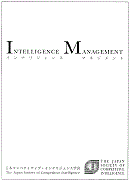Volume 1, Issue 1
Displaying 1-5 of 5 articles from this issue
- |<
- <
- 1
- >
- >|
Review Article
-
Article type: Review Article
2009 Volume 1 Issue 1 Pages 3-11
Published: September 05, 2009
Released on J-STAGE: January 31, 2013
Download PDF (888K)
Article
-
2009 Volume 1 Issue 1 Pages 13-22
Published: September 05, 2009
Released on J-STAGE: January 31, 2013
Download PDF (1483K) -
2009 Volume 1 Issue 1 Pages 23-34
Published: September 05, 2009
Released on J-STAGE: January 31, 2013
Download PDF (1471K) -
2009 Volume 1 Issue 1 Pages 35-45
Published: September 05, 2009
Released on J-STAGE: January 31, 2013
Download PDF (2287K) -
2009 Volume 1 Issue 1 Pages 47-54
Published: September 05, 2009
Released on J-STAGE: January 31, 2013
Download PDF (2259K)
- |<
- <
- 1
- >
- >|
